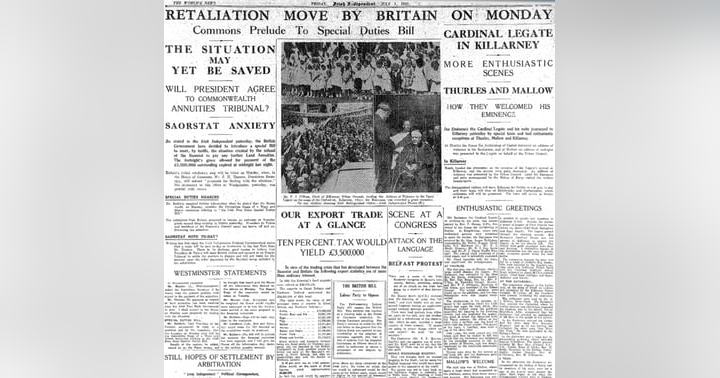Thomas D'arcy McGee - Canadian Politician (1825 - 1868)

Thomas D'arcy McGee, Canadian politician, author, journalist, conservative and revolutionary, was born on the April, 3rd, 1825 in Carlingford, Louth. His mother died when he was 8 years old and the family moved to Wexford where he showed a proclivity for learning at a local hedge school.
Have you listened to our podcast? Get the latest on our Episode Page.
McGee’s father remarried in 1849 and stepmother and stepson appear to have had a poor relationship leading to McGee emigrating to America, along with his sister, 2 years later at the age of 17. He quickly secured a journalism job at the Boston Pilot. Within 2 years McGee had written 2 books on Irish history and had become editor of the Pilot. His writing came to the attention of the Freeman’s Journal in Dublin and he was invited to join the staff back in Ireland.

McGee’s politics radicalized and he was asked to leave the Freeman’s Journal as a result of anonymous articles he wrote for The Nation, an organ of the Young Irelander movement. He joined The Nation in 1847 and deepened his involvement with the Young Irelanders. His involvement with the revolutionary group and their failed 1848 uprising at Ballingarry, Tipperary led to a warrant being issued for his arrest. He fled the country returning to America.
The attack on the Widow McCormack’s house on Boulagh Common, Ballingarry, Tipperary
When McGee returned to America, his political views evolved becoming disenchanted with American republicanism and increasingly disturbed by the treatment of Irish Catholics vilified by the emerging nativist movement. By the 1850s, McGee decamped for Canada where he felt Irish Catholics had better opportunities for political self determination within a country that was loosely ruled by the British Empire. In 1857 he was elected to the Canadian Legislative Assembly.
McGee qualified as a lawyer and rose to ministerial level in the Assembly during the 1860s. His fervent opposition to American based Irish Fenianism which advocated expansion of the United States into Canada, made him a target for Irish radicals. McGee was assassinated in front of his home on April 7th, 1868 after a late night legislative session. There were no witnesses to the crime. Patrick James Whelan, a suspected Fenian was arrested for the crime, convicted and publicly executed despite his protestations of innocence.

McGee’s state funeral in Montreal was witnessed by enormous crowds. He is buried in Notre Dame des Neiges Cemetery and is also commemorated by a cenotaph in Carlingford in his native Louth.
Clockwise from upper left: McGee mausoleum in Montreal;
Carlingford cenotaph, scene from McGee's funeral in Montreal
For a more detailed biography on this remarkable and controversial Irishman, please visit the Dictionary of Irish Biography


















